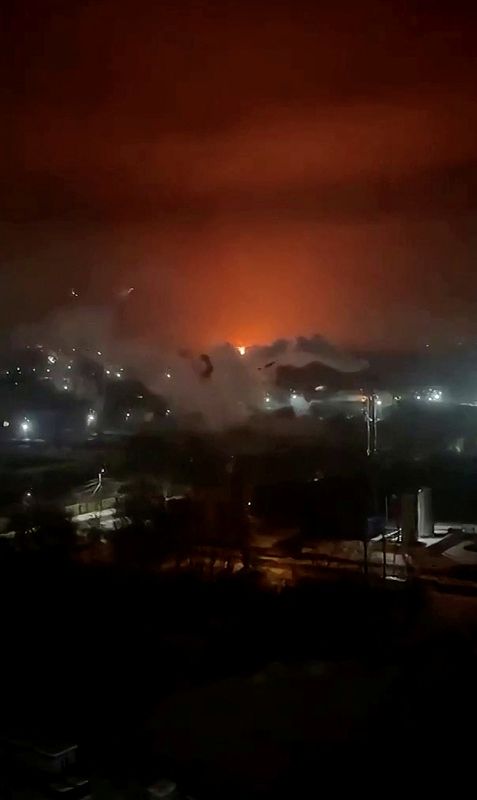MOSCOW (Reuters) -Russia said on Wednesday that Ukraine had struck a military airfield on the Azov Sea with six U.S.-made ATACMS ballistic missiles, a move that could prompt Moscow to launch another experimental intermediate-range hypersonic missile at Ukraine.
Russia's defence ministry said two of the missiles fired by Ukraine were shot down by a Pantsir missile defence system and the rest were destroyed by electronic warfare.
"On the morning of December 11, 2024, the Kyiv regime launched a missile strike with Western precision weapons at the Taganrog military airfield in the Rostov region," the defence ministry said.
"This attack by Western long-range weapons will not go unanswered and appropriate measures will be taken," it said.
Russia fired a new intermediate-range hypersonic ballistic missile known as "Oreshnik", or Hazel Tree, at Ukraine on Nov. 21 in what President Vladimir Putin said was a direct response to strikes on Russia by Ukrainian forces with U.S. and British missiles.
A U.S. official said on Wednesday that Russia could launch another hypersonic ballistic missile in Ukraine in the coming days, but Washington does not consider the Oreshnik weapon a game-changer in the war.
After approval from the administration of President Joe Biden, Ukraine struck Russia with six U.S.-made ATACMS on Nov. 19 and with British Storm Shadow missiles and U.S.-made HIMARS on Nov. 21.
Putin, after those attacks, said that the Ukraine war was escalating towards a global conflict after the United States and Britain allowed Ukraine to hit Russia with their weapons, and warned the West that Moscow could strike back.
The war is entering what some Russian and Western officials say could be its final and most dangerous phase as Moscow's forces advance at their fastest pace since the early weeks of the conflict.

President-elect Donald Trump, who takes office next month, has pushed for a ceasefire and negotiations to end the war quickly, leaving Washington's long-term support for Ukraine in question.
Russia's 2022 invasion of Ukraine has left tens of thousands of dead, displaced millions and triggered the biggest crisis in relations between Moscow and the West since the 1962 Cuban Missile Crisis.